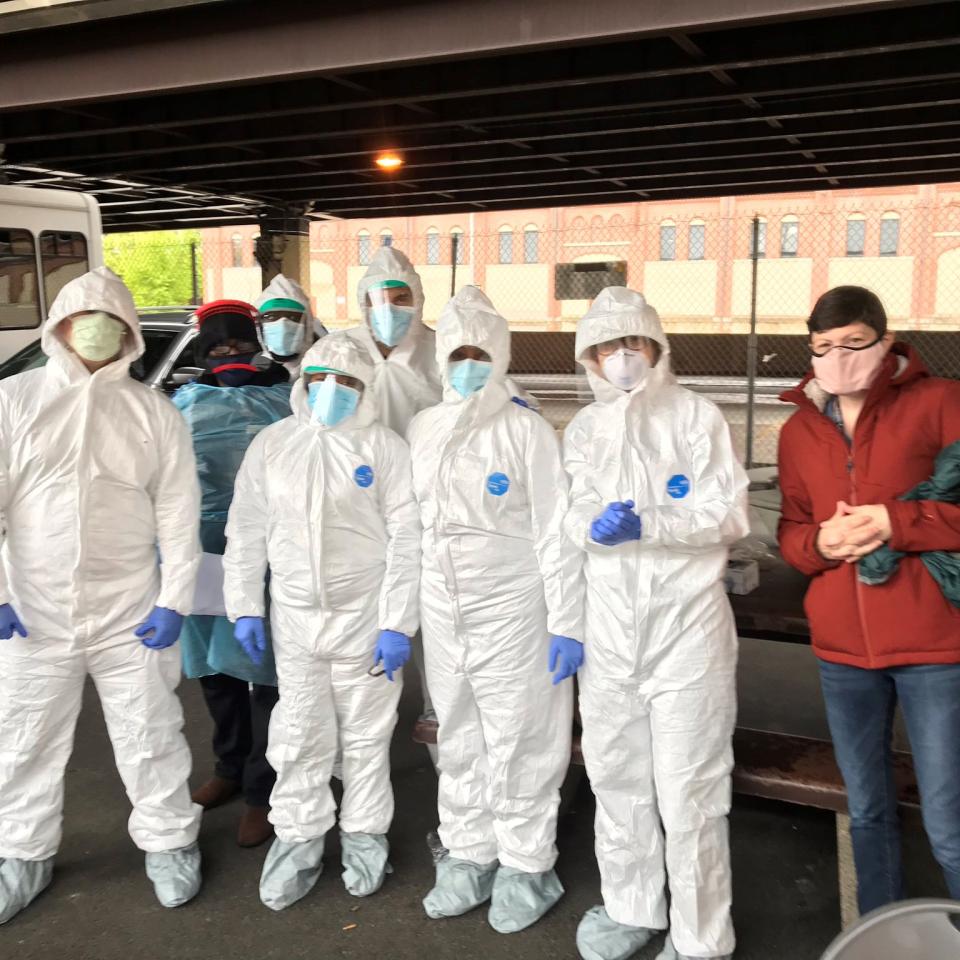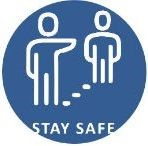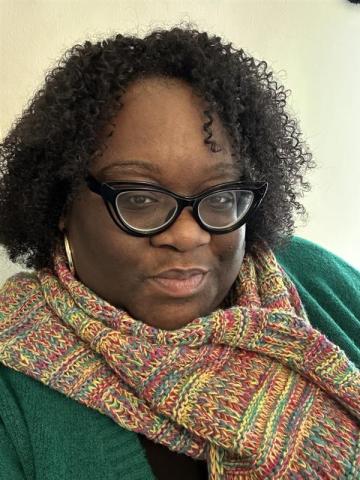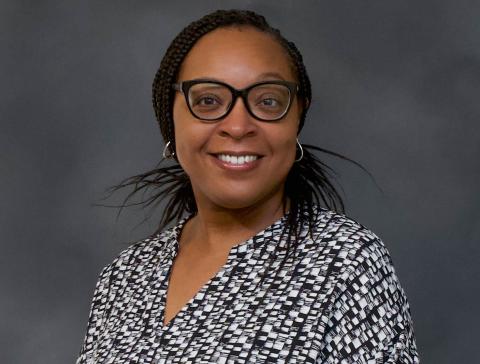
What happens after testing?
Since the first days of our COVID-19 response, many of you have asked, “Where can people who have no home go to safely quarantine or self-isolate?”
Universal testing in city shelters moves forward with 400 newly available isolation rooms
Last week, the 400-room Lord Baltimore Hotel became Baltimore City’s new Triage, Respite and Isolation (TRI) center. It's a place where immigrants, people experiencing homelessness, front-line workers and others who cannot self-isolate can now safely quarantine.
This new capacity for isolation opens the door for the widespread testing at shelters needed to slow the spread.
- On Friday, our staff joined the Johns Hopkins field unit and the Baltimore City Health Department to test 130 residents of the Greenspring shelter (at the former KIPP Academy).
"The process can be stressful, and the testing can feel intrusive—especially for people with traumatic experiences related to homelessness. We're there so people feel seen, heard and connected as they get through this challenge."
Deirdre Hoey, Behavioral Health Therapist
What happens after testing?
Our care doesn't stop. Once shelter residents are isolated at a hotel:
- We continue to coordinate closely with University of Maryland and the Baltimore City Health Department who are providing on-site medical care.
- Our doctors, therapists and case managers conduct telehealth visits by phone for clients and anyone experiencing homelessness.
- We launched a new 24/7 support line for clients who are feeling stressed, anxious or overwhelmed by COVID.
Our medical respite staff, including a community health worker, nurses, medical provider and therapist, are on-site to meet the needs of especially vulnerable clients as they recover from hospital stays.
We're in this together
 |  |  | |
|---|---|---|---|
"Stay at home" restrictions are | Please direct anyone who needs care to | . Your donations support | |
For more updates and a comprehensive look at our agency response to this public health crisis, visit our COVID-19 page.
More Recent News
We are thrilled to welcome Nikia Woodard, our new Director of Human Resources! With more than two decades of experience in the HR field, Nikia previously held leadership roles with the Maryland Transit Administration, Unified Women’s Healthcare and a behavioral health residential treatment facility for youth in Baltimore. Most recently, she served as Director of Employee Experience & Organizational Development at Loyola University Maryland, implementing university-wide professional development programs and encouraging a culture of continuous learning. Read on to learn more about Nikia (and her favorite snack)…
After a year of serving as Practice Manager of West Baltimore, Alkema Jackson is moving into the new role of Director of Practice Operations, Community Sites! She joined Health Care for the Homeless in 2022 as the Client Access Project Coordinator, collaborating across departments to help more people connect to agency services, and in 2023, she received a Core Value Award for Hope. Read on to learn more about Alkema’s approach to this new position…
Meet Christana Greene, our new Director of Compliance! With more than five years in the compliance field—most recently as Senior Quality and Patient Safety Specialist at GBMC Healthcare—Chrissy brings frontline insight to the role. She began her career as a medical assistant, gaining firsthand experience in what it takes to keep care safe and operations running smoothly. In her new role, Chrissy is focused on building a compliance culture grounded in safety, integrity and accountability. Read on to learn more about Chrissy...
Baltimore gets dangerously cold, and too many of our neighbors are out there. Here are three simple things you can do to make a difference in someone’s life this winter.




